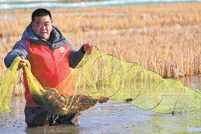Harvard museum holds remains of slaves

Harvard University's museum is in possession of the remains of at least 19 enslaved individuals and about 7,000 Native American Indians, according to a leaked report published by the school newspaper earlier this month.
The Harvard Crimson got hold of a draft report by the Steering Committee on Human Remains in Harvard Museum Collections, which was tasked last year to survey the collection of human remains in the Peabody Museum of Archaeology and Ethnology.
"Our collection of these particular human remains is a striking representation of structural and institutional racism and its long half-life," the Crimson quoted in the draft report's introduction.
The draft, dated April 19, also stated that the human remains "were obtained under the violent and inhumane regimes of slavery and colonialism", representing the university's engagement and complicity in these categorically immoral systems. "Moreover, we know that skeletal remains were utilized to promote spurious and racist ideas of difference to confirm existing social hierarchies and structures," it stated.
The draft called on the university to return the remains of the individuals who were likely slaves to their descendants, and to accelerate returns of Native American remains, which was required by a 1990 federal law called the Native American Graves Protection and Repatriation Act.
The law has required institutions that receive federal funding to return Native American cultural items to their original owners' descendants. Yet, more than 30 years after the law was enacted, the Peabody Museum is still in possession of the remains of nearly 7,000 Native Americans, according to the draft report.
The report recommends the transfer of remains to descendants, burial at an appropriate cemetery, repatriation of the remains to the individuals' "home communities" or continued care at Harvard upon request.
Reflection of history
The Crimson reported the draft report recommends Harvard create "a purpose-designed, on-campus space" where human remains can be respectfully viewed and studied, and to develop courses that explore "problematic collections and how they reflect the university's history".
The report also stated that Harvard's vast museum collection holds the remains of more than 22,000 individuals, and recommends the university create a new Human Remains Returns Committee to determine how the school should treat the human remains of non-Native people and individuals who were not enslaved.
The collection of slaves' remains is another connection of Harvard to slavery. In April, Harvard released a report entitled Harvard and the Legacy of Slavery, which revealed the institute's extensive entanglements with slavery.
The report concluded that "Harvard leaders, faculty, staff, and benefactors enslaved people, some of whom labored at the university; accrued wealth through the slave trade and slave labor; and defended the institution of slavery".
The report also showed that slavery was not limited to the south. Slavery thrived in New England from its beginnings and was a vital element of the colonial economy.
The report said that by 1700, New Englanders made at least 19 voyages to Africa and then to the West Indies, the chief route of the slave trade, as well as many more voyages between Massachusetts Bay and the Caribbean.
As a result of the slavery report, Harvard has pledged $100 million to make reparations for the extensive entanglements that slavery has played in the institution's history.
Today's Top News
- Drills demonstrate China's resolve to defend sovereignty against external interference
- Trump says 'a lot closer' to Ukraine peace deal following talks with Zelensky
- China pilots L3 vehicles on roads
- PLA conducts 'Justice Mission 2025' drills around Taiwan
- Partnership becomes pressure for Europe
- China bids to cement Cambodian-Thai truce






























